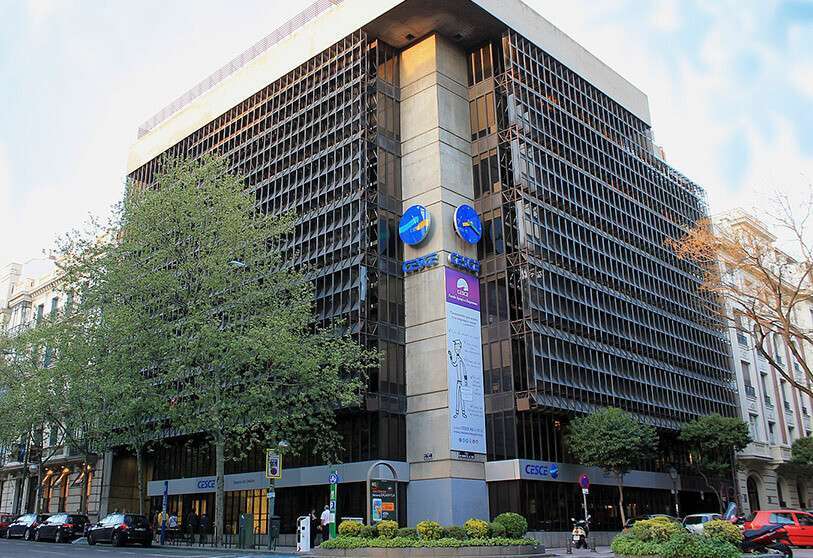The Exporters' Club recommends updating the export credit insurance system

The Spanish Exporters and Investors Club, through a technical note approved by its Reflection Committee on Internationalisation, advises to update the Spanish export credit insurance system on behalf of the State in order to make it more flexible and dynamic.
In the document, the Exporters' Club states that a series of legal and administrative obstacles have prevented the Compañía Española de Seguro de Crédito a la Exportación (CESCE), created in 1970 to cover the risks of non-payment derived from internationalisation operations of Spanish companies, from fully adapting to the changes being promoted by other similar agencies in Spain's competitor countries.
In this context, the Exporters' Club puts forward a series of proposals to make the Spanish system more flexible and to match the competitive advantages that companies in other countries find in their respective systems of official financial support for exports.
Among them, it is recommended that CESCE regain autonomy in decision-making on risk coverage on behalf of the State, with approaches based on technical criteria, and that the ceiling per operation that can be approved directly by the company be substantially raised.
Another proposal is to repeal the 2006 external debt law, which would eliminate the requirement of prior approval by the Government Delegate Commission for Economic Affairs for operations in the so-called "HIPC countries" (developing countries with high public debt). In the opinion of the Exporters' Club, this is an exception to the rule in force in neighbouring countries, which reduces the competitiveness of Spanish companies.
On the other hand, it suggests taking full advantage of the maximum annual volume of risk coverage on behalf of the State, which, although set at 9,000 million euros, is hardly used in one third. "A more flexible policy in terms of countries, transaction ceilings and export contract content would generate more demand for insurance and thus a higher export volume," the technical note states.
Another of the recommendations consists of making the application of the criteria for financing foreign material and local expenditure more flexible, as other countries competing with Spain do. Along the same lines, it is advised to provide maximum facilities for the coverage of large infrastructure contracts or turnkey plants executed abroad by Spanish companies.
Likewise, the Exporters' Club recommends that the Government authorise and provide CESCE with the means to open delegations abroad and hire specialised personnel. This would enable it to implement more aggressive policies of official support for exports through contacts with potential clients in foreign countries, helping them to structure the financing of their operations.
The recommendations also include strengthening collaboration, within the official export credit insurance system, with CESCE's private shareholders (all of them banking and insurance companies) and, where appropriate, exporters' groups in the management and analysis of semi-public or sub-national risks.
Finally, it is proposed that CESCE or the Administration should carry out and publish analyses on the impact on job creation or maintenance of Spanish exports with official financial support.

The proposals of the Exporters' Club are based on the diagnosis that the Spanish system of export credit insurance on behalf of the State has lagged behind in a context in which other countries competing with Spain have been applying, since the 2008 financial crisis, more aggressive policies in the financing conditions of export operations with public support.
On the other hand, the Exporters' Club points out that CESCE itself has been losing autonomy in insuring risks on behalf of the State; firstly, due to the foreign debt law of 2006 and, mainly, due to the legislative modifications made to the company in 2014.
According to the document, "since 2015, the public administration has been the direct decision-maker on the risks to be insured on behalf of the state, as well as in relation to the countries of destination and the amounts of the operations". The Exporters' Club considers that the predominance of political criteria over technical approaches "results in a decrease in the efficiency and agility of the instrument".
The weaknesses of the Spanish system of export credit insurance on behalf of the State also include the insufficient human resources within CESCE (due to the restrictions imposed by the public sector on the hiring of personnel), as well as the absence of subsidiaries and representative offices abroad to help Spanish exporting companies on the ground.
The Spanish Exporters and Investors Club is a multi-sectoral business association whose objective is to represent and defend the interests of Spanish companies with international activity. The worldwide turnover of the Club's members is equivalent to 20% of Spain's GDP. They have around 800,000 employees and their investments abroad represent 40% of Spanish investment stock abroad.








